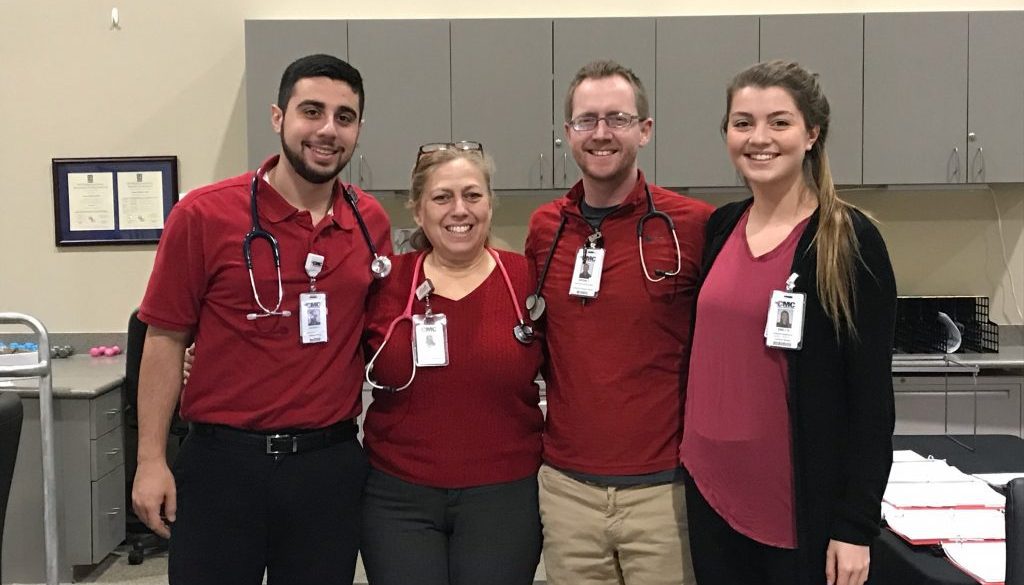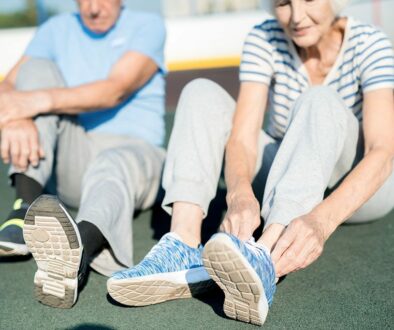CMC Cardiac & Pulmonary Rehab: Your personal cheerleading squad
Have you ever wondered what it might be like to have your own personal coach or cheerleader— someone to help you live a more active and healthy life, and make it a priority? In many ways, this is what CMC Cardiac and Pulmonary Rehabilitation programs do for people recovering from certain heart and lung related conditions and procedures.
Cardiac and pulmonary rehabilitation programs have proven to be beneficial to patients recovering from heart or lung surgeries, have had a traumatic event such as a heart attack or are suffering from chronic issues like COPD or cardiovascular disease. Studies have found that rehab programs like this help men and women, people of all ages, and people with mild, moderate, and severe health problems achieve their health goals, have a better quality of life and even live longer. Cardiac and pulmonary rehab patients are also less likely to be readmitted to the hospital.
There are many other advantages to participating in cardiac and pulmonary rehab programs like weight loss, lower cholesterol, less risk of depression, and successful stress management. These rehab programs can even provide benefits for individuals who are experiencing a decline in their physical endurance or having difficulty with normal daily activities.
What are the short and long-term benefits of cardiac and pulmonary rehab?
- Strengthening your heart, lungs and body
- Relieving symptoms of heart or lung problems, such as chest pain.
- Building healthier habits, including getting more physical activity, quitting smoking, and eating a heart-healthy diet. A nutritionist or dietitian may work with you to help you limit foods with unhealthy fats and eat more fruits and vegetables that are high in vitamins, minerals, and fiber.
- Reducing stress.
- Improving your mood. People are more likely to feel depressed after a major health event. Rehab can help prevent and lessen depression.
- Increasing your energy and strength, making daily activities easier, such as carrying groceries and climbing stairs.
- Making you more likely to take your prescribed medicines that help lower your risk for future health problems.
- Preventing future heart and lung issues, as well as death.
“But wait! Am I too old? Am I too frail?”
No! Even an elderly person with a weak heart and little previous experience with working out can become a success story. Each rehabilitation method has different treatment options, and your plan is customized for you based off your condition and needs. And best of all, you have your “coaches” and “cheerleaders” by your side every step of the way.
At CMC, we have a great team of exercise therapists, dieticians, nurses, and providers dedicated to helping patients get their lives back. Daily, we help people of every fitness level through the process of achieving cardiac and pulmonary health and reducing the risk of developing future health issues.
This may seem like a bunch of added appointments on your calendar, but more than likely you’ll find that you begin looking forward to your sessions. Some patients even find it comforting and a safe place to be knowing that they are monitored by experts who are committed to helping them achieve their goals, renew their strength and build the confidence to stick with their new lifestyle choices.




